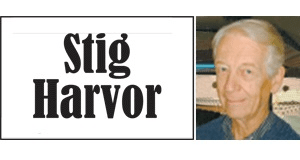The spell is broken! After years of conservative obsession with tax cuts and no budget deficits, our national election in October unexpectedly brought the Liberal party to power led by a young, energetic Justin Trudeau.
Trudeau correctly sensed and took advantage of the public’s frustration with painful government austerity policies. These policies were caused by the worldwide greedy private financial market crash of 2008. To avoid a deep depression similar to the 1930s, governments were forced to bail out the bankrupt private sector.
The public also rebelled against gross and growing income inequality. As our national wealth was increasing by the work of the 99%, the increases were pocketed by the 1%.
Playing Robin Hood, Trudeau appealingly increased taxes on the well-to-do, although only by 4% to 33%. (In the 1960s taxes were up to 90% for the really rich!) He then gave that money to “the middle class” (who tend to actively vote in elections). The poor were largely overlooked (they vote less).
Private corporations inexplicably remained untouched. They were left sitting on their staggering pile of above $600 billion of non-invested “dead money,” roughly equal to our national debt. This money has accumulated from gains by aggressive corporate tax cuts over earlier years.
Trudeau, to his great credit, broke the conservative mania against budget deficits. To stimulate much-needed employment, he doubled money for public infrastructure.
This meant accepting budget deficits.
His promise to then balance his budget in the next three years will require a hazardous balancing act and lots of luck if oil, gas and other commodity prices remain low.
Trudeau has started a significant new and welcome direction of government policies. The effect of this has even filtered down to our municipal level in Toronto.
Our basically conservative Mayor John Tory is slowly accepting our city has a revenue problem rather than a spending problem.
Tory recently floated the idea of an additional property tax increase of 0.5% for what he calls “a levy for a City Building Fund” while carefully avoiding the word tax.
Despite his fluent rhetoric and expressed good intentions, however, Tory is not a true city builder. Catering to frustrated suburban drivers and their votes, he still insists on spending around $1 billion to keep the old, crumbling Gardiner Expressway.
He also insists on building an expensive Scarborough subway rather than the originally approved much less expensive Light Rail Transport (LRT) fully funded by the province.
In a welcome change to evidence-based decision making, however, Tory now backs a modified, less-expensive subway extension from Kennedy directly to the Scarborough Town Centre with no stops between.
Our new 2016 city budget will be debated and approved by city council Feb. 17-18. The proposed budget was first revealed just before Christmas on Dec.15 with an initial deficit of millions. These deficits have become a permanent feature of proposed budgets.
They are the result of the forced 1998 amalgamation of our city by Mike Harris, our revolutionary “Common Sense” premier.
Mike Harris then unilaterally transferred (actully, downloaded) provincial responsibilities and costs to the new megacity.
Tory continues to make it appear property tax increases will be held at or below inflation as promised in his election.
In a crafty play of words, he now hides the fact the residential property taxpayer is actually paying for inflation plus increases called levies. The use of the word levies appears to soften opponents of taxes as long as the levies are dedicated to specific purposes they support.
The last two years a 0.5% levy was to pay for our city’s share of the high cost of the Scarborough subway imposed by Rob Ford.
Again this year, this subway levy will be added to the inflationary increase of 1.3%. Tory’s proposed new Building Fund levy, if and when approved, will then be added in the future.
It is all a way to make it appear Tory is keeping his promise by calling tax increases “levies.”
Political wordplay can be deceptive but also useful when the result is more desperately needed money for our growing and diversified city.
For all his conservative shortcomings, John Tory is a welcome relief from Rob Ford just like Justin Trudeau is from Stephen Harper. Trudeau, in response to public sentiment, has set the tone for a more hopeful national future.
Will our mayor and councillors follow suit?
 TheBulletin.ca Journal of Downtown Toronto
TheBulletin.ca Journal of Downtown Toronto

